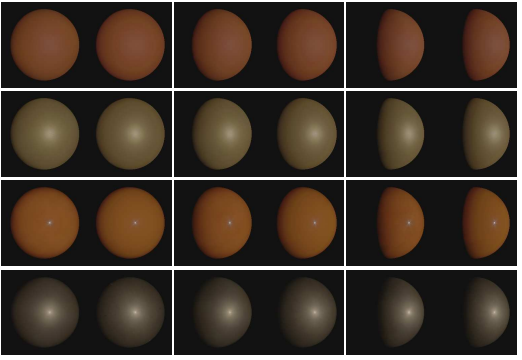
Efficient Isotropic BRDF Measurement
Eurographics Association: Proceedings of the 14th Eurographics Workshop on Rendering, 2003.
In this paper we present two novel reflectance measurement procedures that require fewer total measurements than standard uniform sampling approaches. First, we acquire densely sampled reflectance data for a large collection of different materials. Using these densely sampled measurements we analyze the general surface reflectance function to determine the local signal variation at each point in the function’s domain. We then use wavelet analysis to derive a common basis for all of the acquired reflectance functions as well as a corresponding non-uniform sampling pattern that corresponds to all non-zero wavelet coefficients. Second, we show that the reflectance of an arbitrary material can be represented as a linear combination of the surface reflectance functions. Furthermore, our analysis provides a reduced set of sampling points that permits us to robustly estimate the coefficients of this linear combination. These procedures dramatically shorten the acquisition time for isotropic reflectance measurements. We present a detailed description and analysis of our measurement approaches and sampling strategies.